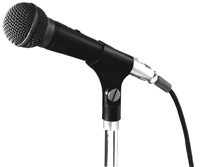Libraries at University of Nebraska-Lincoln

University of Nebraska-Lincoln Libraries: Presentations
ORCID IDs
Date of this Version
7-16-2013
Document Type
Article
Abstract
What is the Library? The Library is its services. The Library is no longer just a collector. It is a distributor and a publisher. Scholarly Communication includes: 1.Repositories 2.Publishing 3.Copyright Education. Why have a repository? Institutional Repositories in U.S.A. Why a repository succeeds. Many IR’s have had an uphill struggle because of their approach. Our Approach at Nebraska: Provide Services. “Beyond Mediated Deposit” The 2 Keys to online success. Our offer to faculty. Growth of Nebraska IR, 2006-2013. Impact of Nebraska IR, 2006-2013. Reach of Nebraska IR, 2013: 213 countries. Every month the author gets an email. July 2012 – June 2013: 50,250 out of 51,480 documents were downloaded = 97.6%.
Things Publishers Believe. Why should libraries become publishers? Publishers’ requirements. So, We began publishing e-books and POD books through our repository as far back as 2006. Zea Books; Zea Books Terms. 20 titles, 18+ electronic classics reprints.
Copyright is … 1.Important 2.Confusing 3.A battleground. Copyright protects Original creators of intellectual property; But these creators … are required to surrender their rights. Ownership of those rights … Passes to large multinational private corporations or societies. And those rights are administered For the benefit and profit of the secondary owners !! Some publishers are also willing to [do nefarious things]. Copyright education is needed to reclaim public and academic rights.
Open Access A good idea; a good cause, … but also An opportunity for entrepreneurs & A new income stream for publishers -- when a good cause becomes a cover for a profit incentive. Gratis ... Libre ... Their disagreement ... The big tent. Libre supporters and Gold OA. 1) Does scholarly communication have to be a commercial transaction? 2) Is “open access” just a way to provide an alternate income stream for commercial publishers? My beef with Gold and Hybrid OA.
Vision: Libraries can lead the academy back to control of its own intellectual output . . . some day.


Comments
Presented July 16, 2013, James Branch Cabell Library, Virginia Commonwealth University, Richmond, VA